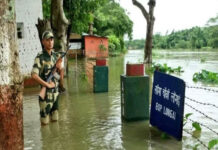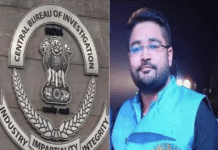A flurry of meetings between the Chinese ambassador to Nepal, Hou Yanqi, and top Nepal leaders, including President Bidhya Devi Bhandari, has exacerbated concerns both here and in Kathmandu about possible Chinese interference in Nepal’s domestic politics.
The meetings come at a time PM K P Oli, who is considered close to China, is busy staving off calls from his own party leaders to step down. How successful Oli has been in his efforts will likely be determined in a meeting of the ruling communist party’s powerful standing committee on Wednesday.
Apart from Bhandari, Hou has also met influential leaders and former PMs Madhav Nepal and Jhala Nath Khanal. Both have demanded Oli’s resignation as PM and also party chairperson. Hou is said to have also sought a meeting with Oli’s rival and party co-chair P K Dahal Prachanda.
As many as 30 in the 44-member standing committee have demanded Oli’s resignation. However, while the standing committee is against Oli, Prachanda and leaders supporting him like Nepal and Khanal will probably have to do a lot more than just demand his resignation. If Oli refuses to resign, they can still initiate disciplinary action against him and consider expelling him from the party but it’s not clear if Prachanda and others will go that far.
“No leader will want to take the blame for splitting the party. The differences among the top leaders are not as serious as being made out and can still be sorted out,” said a source in Kathmandu who didn’t want to be named.
Significantly, according to reports in Nepal media, Hou’s meeting with Bhandari wasn’t approved by the foreign ministry and violated the diplomatic “code of conduct”. Bhandari had earlier quickly approved Oli cabinet’s recommendation to prorogue the ongoing session of Parliament. The recommendation was apparently meant to forestall any attempt to force Oli to take a floor test.

Blog: Time for Nepal PM to realise that he is the problem, not India
Hou is said to have emphasised before Khanal and Nepal the need for them to amicably resolve their differences with Oli and ensure that the party remains intact. Fears have been expressed earlier about how Oli may introduce an ordinance to split the party and remain in power.
A Chinese embassy spokesperson was quoted as saying by Kathmandu Post that “China did not wish to see the Nepal Communist Party in trouble and wished that leaders would resolve their differences and stay united”. China was said to have made similar efforts to save Oli’s government in 2016
While Oli is said to be exploring the option of splitting the party and surviving in power with support possibly from Nepali Congress, the main opposition party, a meeting of the opposition parties on Monday held that Oli’s “immature” foreign policy had hurt ties with neighbouring countries. The meeting was attended by leaders of the Nepali Congress and Janta Samajbadi Party.
While Oli claimed to follow an independent foreign policy, his decision to release hastily a new map of Nepal, despite India’s objections, showing strategically located India-held territories at China-India-Nepal tri-junction as Nepal’s has raised doubts here about his motives. The new map was unanimously approved by Nepal’s Parliament though. Nepal’s endorsement of China’s new security law in Hong Kong has also not gone unnoticed here.





















































